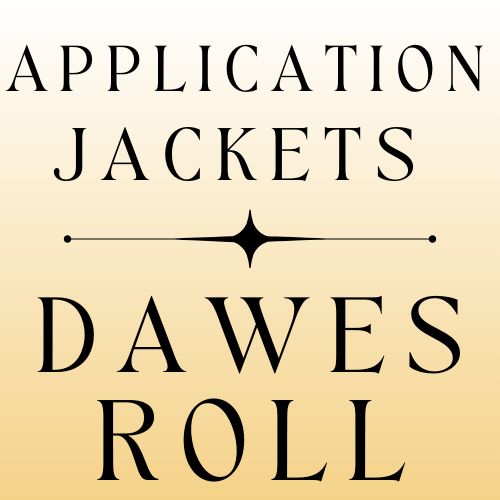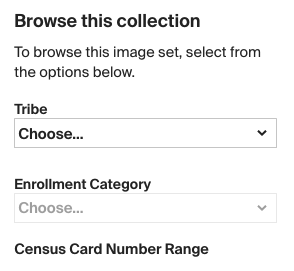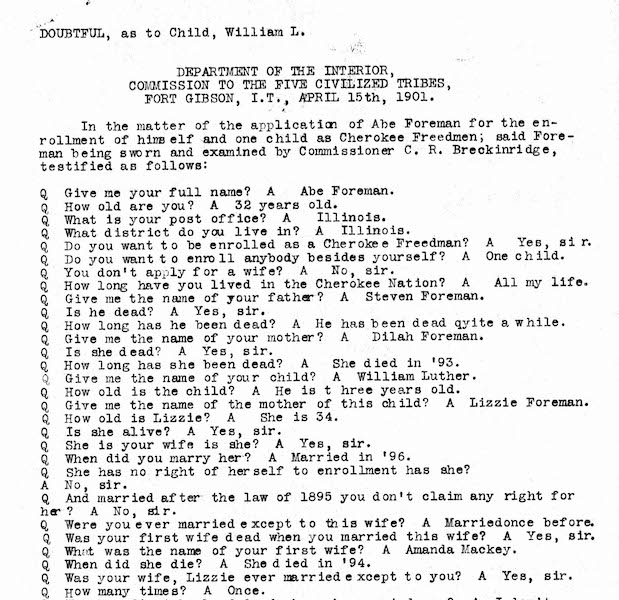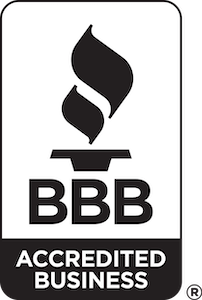Application Jackets
1898-1914

Application jackets were the supporting documents submitted by individuals and families applying for land allotments under the Dawes Act of 1887. These records were collected as part of the Dawes Commission enrollment process (1898–1914) and were used to verify eligibility for inclusion on the Dawes Roll, which documented members of the Five Civilized Tribes—Cherokee, Creek, Choctaw, Chickasaw, and Seminole—in Indian Territory (modern-day Oklahoma).
- Ancestry.com - Oklahoma and Indian Territory, U.S., Land Allotment Jackets for Five Civilized Tribes, 1884-1934
- FamilySearch - Applications for enrollment of the Commission to the Five Civilized Tribes, 1898-1914
- FamilySearch - Oklahoma, Applications for Allotment, Five Civilized Tribes, 1899-1907
- Applications for Enrollment of the Commission to the Five NARA - Civilized Tribes, 1898–1914
Contents of Application Jackets:
The application jackets contain detailed personal and genealogical information, making them an invaluable resource for family history research. Typical contents include:
Enrollment Applications:
- Names of applicants and family members, Tribal affiliation, Degree of Native American blood quantum, Place of residence, Age, gender, and marital status.
Affidavits and Testimonies:
- Statements from applicants, relatives, and neighbors sworn under oath to verify lineage.
- Personal accounts regarding tribal membership, residency, and ancestry.
Family Relationships:
- Details about parents, grandparents, siblings, and children.
- Marriage and birth records, including dates and locations.
Rejections and Appeals:
- Denial letters explaining why an applicant was rejected (e.g., insufficient evidence, lack of blood quantum, or failure to prove tribal ties).
- Appeals and additional supporting documentation submitted to overturn rejections.
Correspondence:
- Letters between applicants and the Dawes Commission regarding the application process.
- Responses to questions or requests for additional information.
Supporting Documents:
- Baptismal records, school records, and affidavits from tribal leaders or other tribal members confirming ancestry.
- Tribal census data and previous enrollment in tribal rolls.
Limitations of Application Jackets
Incomplete Documentation:
- Some applications were denied, and not all applicants were included in the Dawes Roll even if they had legitimate claims.
Exclusions:
- Many Native Americans refused to participate in the Dawes Commission’s process, viewing it as a violation of tribal sovereignty.
- Others lacked written records or did not meet the blood quantum requirements imposed by the U.S. government.
Freedmen Issues:
- Freedmen (formerly enslaved people within the tribes) were often documented in separate rolls, and their eligibility for citizenship has remained a source of controversy in certain tribes, especially the Cherokee Nation.





